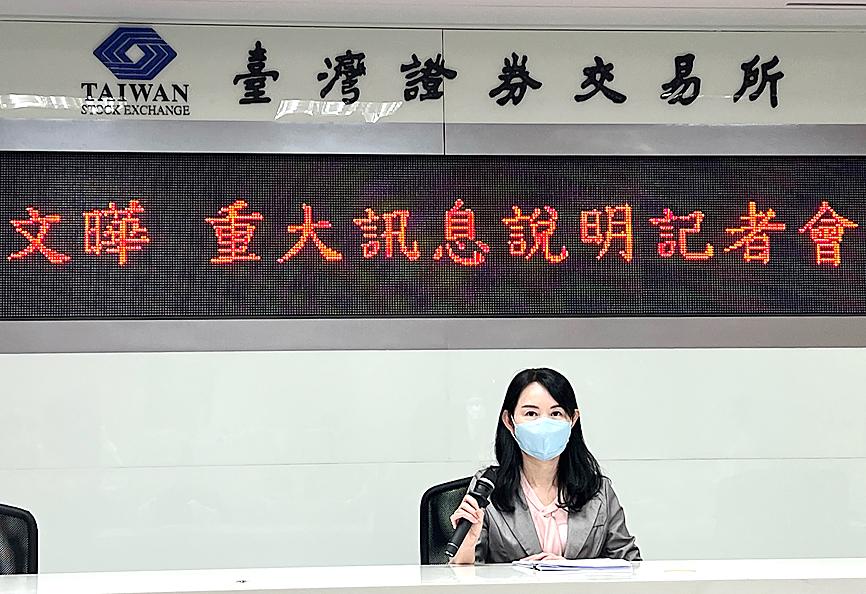Semiconductor components distributor WT Microelectronics Co (文曄科技) yesterday said it would acquire a 100 percent stake in Singapore-based Excelpoint Technology Ltd (世健科技) to expand its business and better serve its customers.
Excelpoint is a regional electronic components distributor providing electronic components, engineering design services and supply chain management, its Web site says.
WT Microelectronics said in a statement that it plans to buy Excelpoint shares at S$1.93 per share through its wholly owned subsidiary WT Semiconductor Pte Ltd.

Photo: CNA
The transaction, which is to cost more than S$232.2 million (US$170.22 million), is expected to occur in the third quarter after gaining approval from Excelpoint shareholders, regulatory authorities and the Singapore High Court, it said.
Excelpoint founder and CEO Albert Phuay would continue to head the firm, while reinvesting part of the cash received in the deal to acquire a 20 percent stake in WT Semiconductor, it added.
“There are strong synergies between the two companies, which believe in adding value to partners. Our complementary and enhanced product line will allow our businesses to expand,” WT Microelectronics said in the statement. “Most importantly, with the experienced teams and footprints of the two companies, customers will benefit from the extensive product solutions and technical support provided by the WT group, helping them to reach the market faster.”
WT Microelectronics reported revenue of NT$447.9 billion (US$15.4 billion) last year, up 26.83 percent from a year earlier.
Net profit was NT$7.92 billion, up from NT$3.79 billion in 2020, with earnings per share of NT$9.96, company data showed.
WT Microelectronics, which was established in 1993, partners with nearly 100 suppliers across major technology segments to serve more than 8,000 customers worldwide, it said.
Excelpoint’s revenue and profit also showed robust growth last year, with revenue increasing 44.2 percent annually to US$1.6 billion and net profit surging 137.2 percent to US$24.5 million, company data showed.
Since it was established in 1987, the Singaporean firm has built long-term relationships with major customers, such as Analog Device Inc, Qorvo Inc, Qualcomm Inc and Samsung Electronics Co, and now works closely with more than 4,000 companies.
“Combining the two companies’ established customer bases will significantly improve WT’s distribution capabilities and customer portfolios in the Asia-Pacific region,” WT Microelectronics said. “The cross-selling of various products to Excelpoint’s and WT’s customers will not only realize potential synergies for the enlarged WT group, but also create further demand opportunities for the suppliers.”

SEMICONDUCTORS: The German laser and plasma generator company will expand its local services as its specialized offerings support Taiwan’s semiconductor industries Trumpf SE + Co KG, a global leader in supplying laser technology and plasma generators used in chip production, is expanding its investments in Taiwan in an effort to deeply integrate into the global semiconductor supply chain in the pursuit of growth. The company, headquartered in Ditzingen, Germany, has invested significantly in a newly inaugurated regional technical center for plasma generators in Taoyuan, its latest expansion in Taiwan after being engaged in various industries for more than 25 years. The center, the first of its kind Trumpf built outside Germany, aims to serve customers from Taiwan, Japan, Southeast Asia and South Korea,

Gasoline and diesel prices at domestic fuel stations are to fall NT$0.2 per liter this week, down for a second consecutive week, CPC Corp, Taiwan (台灣中油) and Formosa Petrochemical Corp (台塑石化) announced yesterday. Effective today, gasoline prices at CPC and Formosa stations are to drop to NT$26.4, NT$27.9 and NT$29.9 per liter for 92, 95 and 98-octane unleaded gasoline respectively, the companies said in separate statements. The price of premium diesel is to fall to NT$24.8 per liter at CPC stations and NT$24.6 at Formosa pumps, they said. The price adjustments came even as international crude oil prices rose last week, as traders

SIZE MATTERS: TSMC started phasing out 8-inch wafer production last year, while Samsung is more aggressively retiring 8-inch capacity, TrendForce said Chipmakers are expected to raise prices of 8-inch wafers by up to 20 percent this year on concern over supply constraints as major contract chipmakers Taiwan Semiconductor Manufacturing Co (TSMC, 台積電) and Samsung Electronics Co gradually retire less advanced wafer capacity, TrendForce Corp (集邦科技) said yesterday. It is the first significant across-the-board price hike since a global semiconductor correction in 2023, the Taipei-based market researcher said in a report. Global 8-inch wafer capacity slid 0.3 percent year-on-year last year, although 8-inch wafer prices still hovered at relatively stable levels throughout the year, TrendForce said. The downward trend is expected to continue this year,

POWERING UP: PSUs for AI servers made up about 50% of Delta’s total server PSU revenue during the first three quarters of last year, the company said Power supply and electronic components maker Delta Electronics Inc (台達電) reported record-high revenue of NT$161.61 billion (US$5.11 billion) for last quarter and said it remains positive about this quarter. Last quarter’s figure was up 7.6 percent from the previous quarter and 41.51 percent higher than a year earlier, and largely in line with Yuanta Securities Investment Consulting Co’s (元大投顧) forecast of NT$160 billion. Delta’s annual revenue last year rose 31.76 percent year-on-year to NT$554.89 billion, also a record high for the company. Its strong performance reflected continued demand for high-performance power solutions and advanced liquid-cooling products used in artificial intelligence (AI) data centers,